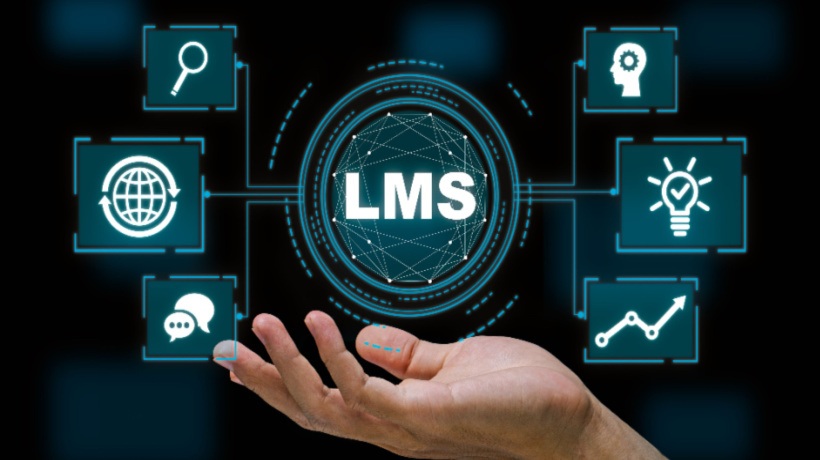Why Stakeholders Object To LMS Investment And How To Win Them Over
At some point in your LMS implementation, you are going to come up against major obstacles. The biggest one usually comes right at the beginning: bringing the leadership team along on the journey. In reality, we in L&D know there is no question that a highly skilled workforce leads to business growth. We just need to be able to describe that process to our stakeholders. Below, I’ve picked out 5 reasons leaders often object to LMS investment, along with tips on how to win them over. Get yourself acquainted with terms like ROI, efficiency, and economy!
Tips To Overcome LMS Apprehensions
1. “We Can’t See The Point Of Investing Right Now. Budgets Are Too Tight”
Response: Focus on ROI
The business case is straightforward. An LMS investment enables a highly skilled workforce. In turn, it helps achieve business objectives. Skilled employees make for excellent customer experience, which differentiates you from competitors. This makes you more attractive to both customers and investors. All of this is supported by accurate, timely reporting from anywhere in the world. Implement your LMS right, and ROI is assured. Be ready to describe your ROI in simple terms, from the outset of your corporate eLearning project. Ensure the LMS you are purchasing will provide these positive impacts. In short, you must feel assured in communicating with senior leaders that LMS benefits are real and tangible.
2. “There’s No Link Between An LMS And Profits”
Response: Explain the value of customer experience
How will an LMS investment benefit the customer? Ultimately, equipping frontline staff with easily accessible, consistent and timely training is a valuable investment. They’ll gain better brand knowledge, boost engagement with teams and managers, and build skills. This will make them better able to inform and delight customers. Customer experience is the best way to differentiate from competitors, which in turn leads to increased profits. You can research case studies that involve companies who have made the switch to online training and achieved their objectives. Come prepared with concrete statistics and figures so that stakeholders can see that LMSs are a viable and tested solution. Bottom line, you have to prove that an LMS isn’t a drain on your resources. Instead, it's a cost-effective way to improve productivity, performance, and employee satisfaction to boost your bottom line.
3. “It’s Too Expensive”
Response: It’s all about the three Es: Efficiency, Effectiveness, Economy
Effectiveness: The value of an LMS investment comes in large part from time savings. Namely, online training reduces travel time, minimizing disruption to the individual. An LMS provides global teams with faster and stronger collaboration through online training and communities. The vastly improved analytics capability enables faster and more consistent management reporting.
Efficiency: Consider the long-term value you are gaining from the LMS investment. Describe efficiency in terms of the benefits an LMS will bring. For example, it reduces turnover, improves long-term engagement, and enhances in-house training capabilities. Use this term to talk about the real impact of an LMS on corporate success.
Economy: If you’re moving to a cloud-based LMS, you’ll have reduced infrastructure costs. Many organizations are moving from an on-site model of training delivery to eLearning, due to the COVID crisis. Thus, the LMS helps you avoid all the travel and facilities expenses. Also, if you’re in a highly regulated industry, you’ll avoid high penalties for failure to complete essential compliance training. Considering the ways in which investing in an LMS will cut costs is a vital element in describing value for money.
4. “An LMS Won’t Make Any Difference: We Already Have Online Training Courses”
Response: An LMS provides anywhere, anytime learning
Describe how moving to a consolidated environment, with thoroughly redesigned learning materials, will improve the experience of online training. A responsive LMS will enable corporate learners to train whenever and wherever they choose. Timely training will improve brand knowledge and connection, particularly for remote staff. For all employees, demonstrating a commitment to skills development will have a positive impact on employee engagement. A robust LMS will have a social element to it that links seamlessly with your existing social platform. Connecting people across locations whilst training is hugely beneficial for virtual teams. Their shared understanding and questioning will strengthen their bond and their knowledge.
5. “Our Organization Is Still Too Small To Consider An LMS”
Response: Companies of all sizes can benefit from online training
Even start-ups and SMBs can reap the rewards of LMS implementation. In fact, it’s best to invest in a platform before you expand your organization so that you can build a solid foundation. For example, even companies that employ 10 employees have the opportunity to deploy online training resources remotely. This expands their talent pool and saves them the expense of costly traditional training. No need to hire an on-site instructor or print materials. An LMS can also scale with your business needs. Especially if you choose a cloud-based option that allows you to add on users and upgrade your pricing plan.
Conclusion
Describing and selling a new LMS investment is a challenge. It’s about being clear about goals and bringing stakeholders along onboard early on. Particularly those who don’t recognize the value of your L&D strategy. For instance, how do you describe the value for money of the LMS? How do you calculate the value of a potential LMS investment to be sure you’re making the right recommendation? Any system that can’t provide you with the benefits in these areas is not going to build that all-important business case. Simply put, if you have to fight for your LMS investment, be armed and ready with cast-iron responses to their concerns.
It's wise to come prepared for your stakeholder meeting with a list of potential LMSs that suit your organization’s needs. Use our free online LMS directory to choose the ideal platform that fits your budget. You can also narrow the results by features, deployment type, and use case.









